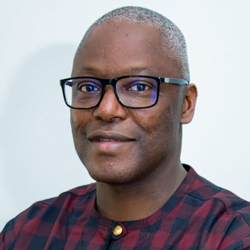
Dr Michael Adekunle Charles
As humans, we are facing several threats: biological, climate, global instability, weakened health systems. The threat of malaria is compounded by all of these — and the most vulnerable are women, girls and children.
In Africa, malaria is not only deadly but exacerbates poverty, strains health systems and deepens gender inequality by disproportionately affecting women and girls.
Disproportionate malaria threat to women and girls
Particularly dangerous to pregnant women and infants, malaria contributes to 10,000 maternal deaths per year. Adolescent girls are also at significant risk of falling through the many gendered gaps in the provision of malaria services.
Now, the climate crisis worsens this challenge. Natural disasters displace vulnerable populations, limiting their access to essential malaria services. According to the United Nations, 80% of those displaced by the climate crisis are women and girls.
Unifying against malaria
Let’s not wait for another natural disaster. Flooding, droughts and extreme weather patterns are breeding grounds for mosquitoes, which makes our battle harder. National leaders, donors and policymakers must ensure that the fight against malaria is gender-responsive, confronting bias and discrimination and mainstreaming it into conversations and interventions.
Flooding, droughts and extreme weather patterns are breeding grounds for mosquitoes, which makes our battle harder.
We must also adopt a multi-sectoral approach, strengthening health systems to address malaria and enhance resilience and sustainability. We can’t tackle this alone. Malaria is just a small part of the broader global health challenge. Countries with the highest malaria rates also have low Universal Health Coverage scores, increasing the risk of fatalities.
Transforming health equity
Transformational change is required to achieve health equity, protecting people’s rights worldwide and enabling global preparedness amid increasingly severe changes in our climate. Systematic change can only happen if we come together, coordinate and raise awareness of the urgent need for healthier societies. Otherwise, an increasing number of people will die from this preventable disease.
Focus now must be on developing programmes, policy and research targeting more sustainable health systems — with a gendered lens. By recognising the additional burden that women carry, we can build a stronger, more equitable world.



